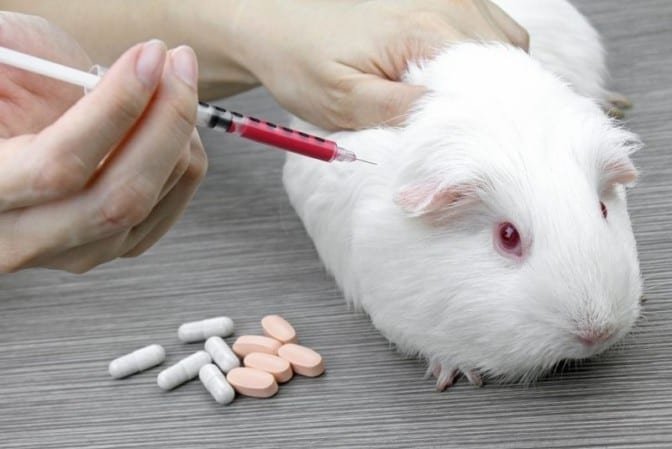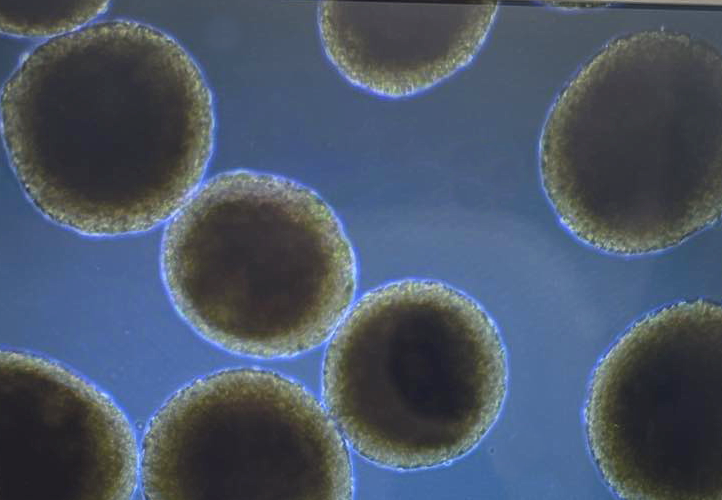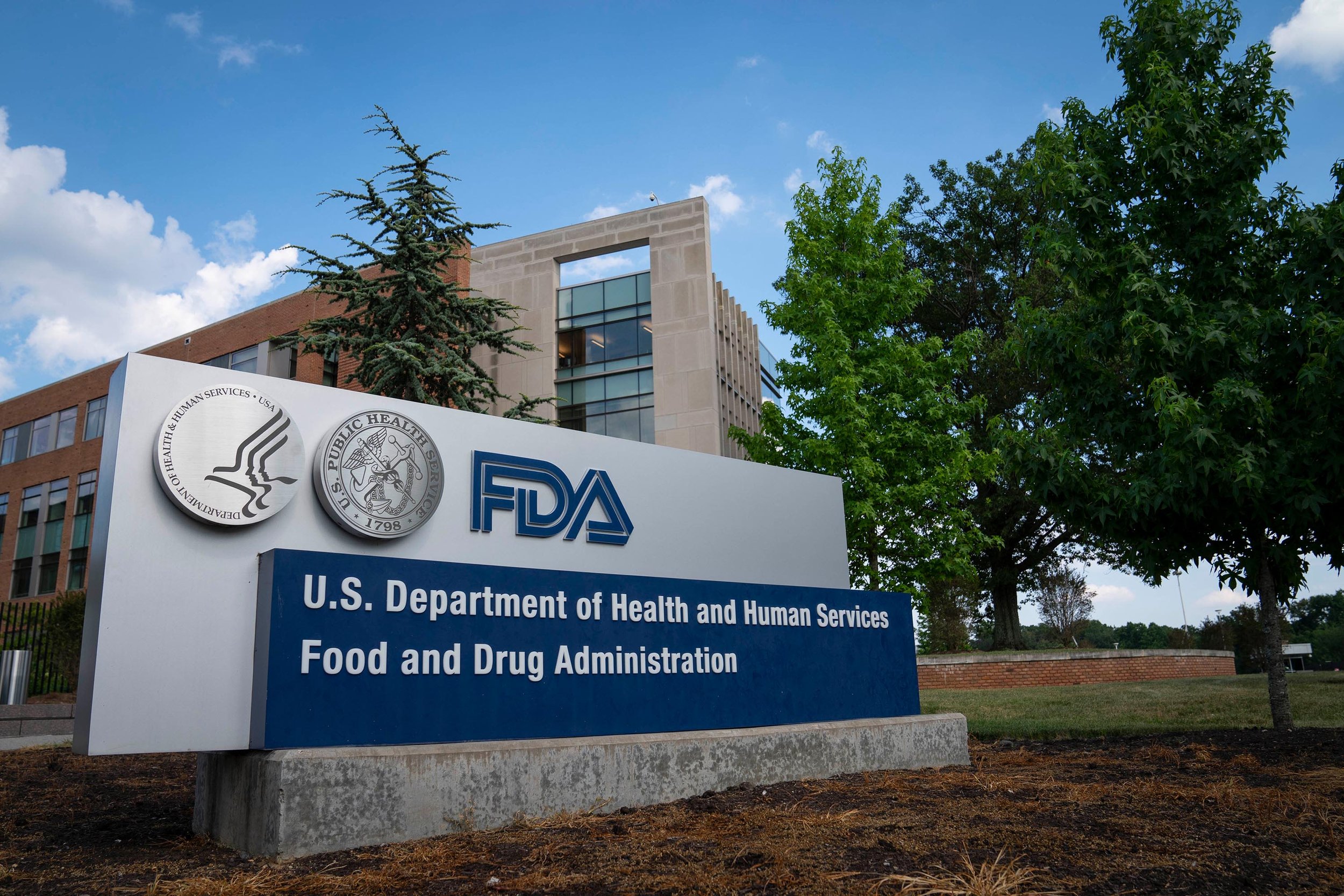
Revolutionizing Healthcare: How Induced Pluripotent Stem Cells are Paving the Way for Personalized Medicine
By Zachary Liebowitz | May 30th, 2024
“Not only is this model of personalized medicine more clinically relevant than today’s approaches, it is simultaneously more humane, time effective, and cost efficient.”

Innovation in New Approach Methodologies at the 2024 Society of Toxicology Meeting
By Breanne Kincaid | May 16th, 2024
“By harnessing the power of technology, fostering collaboration, and prioritizing regulatory acceptance, we can chart a course towards a safer, more sustainable future.”

Briefing Over Breakfast
By Andrew Obeng | May 9th, 2024
“Earlier this week, Dr. Paul Locke and Rebecca Critser as well as White Coat Waste Project’s Justin Goodman presented their comments on the reversal of the EPA’s promises to minimize animal testing by 2035”

Innovative Solutions for an Invisible Threat: Enhancing PFAS Assessment
By Loza Taye | May 2nd, 2024
“The PFAS public health threat demands rapid and sustained action and innovative solutions. Increasing evidence indicates that NAMs should be prioritized as a path to tackle the sizeable chemical class with speed and efficacy.”

Animal Experimentation Regulations in Japan and Recommended Legal Education
By Kenta Minamitani | April 18th, 2024
“Enhancing the understanding and application of animal law, guided by ethical imperatives and sustainable scientific practices, can not only significantly enrich legal education in Japan, but also improve the circumstances regarding animal testing generally.”

Virtual Testimony Before the Maryland Legislature to Support Senate Bill 761
By Sherman McFarland | April 4th, 2024
[Senate Bill 761] represents a humane step forward for animals in Maryland—in particular, cats and dogs—and I hope that it becomes available for reconsideration soon.

A Day at the Capitol: Cruelty Free Science Day
By Andrew Obeng | March 21st, 2024
“On March 7th, our Toxicology Policy team leader, Dr. Paul Locke, Hopkins doctoral student Breanne Kincaid, and post-doctoral student Itzy Erin Morales Pantoja, presented their research at a Capitol Hill briefing hosted by Cruelty Free International.”

Your Body, Your Treatment: The Clinical Potential of Microphysiological Systems in Personalized Medicine
By Loza Taye | March 7th, 2024
“Despite challenges, MPS are a promising platform in personalized medicine. MPS enhance research capabilities within disease modeling, drug testing, and regenerative medicine. As the technology advances, it offers unprecedented insights into disease progression and customized treatment strategies.”

The American Bar Association joins the fight to promote better science
By Paul Locke | February 22nd, 2024
In passing this resolution, the ABA has recognized the importance that replacement alternatives are playing now and will play in the future.

Three State Bills/Laws That Don’t Go Far Enough To Reduce And Replace Animals Used In Testing (Part 2)
By Sherman McFarland | February 7th, 2024
The medical research exemptions in California’s law, Illinois’ law, and Massachusetts’ bill are so broad that these pieces of legislation have been rendered almost completely ineffective.

NAMs and MPS and Organoids, Oh My!
By Breanne Kincaid | January 24th, 2024
The field of in vitro toxicology is moving forward rapidly, and there are numerous novel technologies now available that are poised to advance the physiological relevance of toxicity testing for human risk and hazard assessment.

Could Octopuses Become the Next “Lab Rat”?
By Daria Bednarczyk | January 11th, 2024
As the common English saying goes, “just because you can doesn’t mean you should.” This declaration significantly ties into the topic of using animals for laboratory experimentation…

Reimagining Legacy Animal Data Through the Lens of AI
By Yiguang Zhu | December 14, 2023
This August, members of our team attended the 12th World Congress on Alternatives and Animal Use in the Life Sciences (WC-12), a significant event dedicated to advancing the 3Rs principles (replacement, reduction, and refinement) in scientific research, industry, and regulatory practices…

Where Do New Approach Methodologies Belong in Toxicity Testing? Key Takeaways from ASCCT
By Breanne Kincaid | November 9, 2023
With over 350,000 discrete chemical compounds and mixtures in commerce globally – many of which have never been thoroughly assessed for their risk to human health – it is imperative that industries and regulators have access to fast, accurate, human-relevant toxicity testing methods…

Three State Bills/Laws That Don’t Go Far Enough To Reduce And Replace Animals Used In Testing (Part 1)
By Sherman McFarland | October 26, 2023
Federal agencies and elected officials should not view the shortage of non-human primates (NHP) available for research as a problem that needs to be fixed by acquiring more NHPs. The real problem is what the NHP shortage allegedly does: impedes research…

Law and Policies Effect on EPA Work Plans and Non-Animal Vertebrate Timeline
By Andrea Uhlig | October 12, 2023
Government agencies, such as the Environmental Protection Agency (EPA), make regulatory decisions based on laws set by Congress, and policies put in place by past or current administrations…

ARPA-H: A Catalyst for Advancing Microphysiological Systems
By Yiguang Zhu | September 28, 2023
The Advanced Research Projects Agency for Health (ARPA-H), a new federal agency within the NIH, has emerged as a significant force in biomedical and health research…

The Shortage of Non-Human Primates Available for Research Opens a Door for Non-Animal Test Methods
By Sherman McFarland | September 14, 2023
Federal agencies and elected officials should not view the shortage of non-human primates (NHP) available for research as a problem that needs to be fixed by acquiring more NHPs. The real problem is what the NHP shortage allegedly does: impedes research…

Where Do MoCRA and HCA Fall in the Landscape of Animal Cosmetics Testing?
By Breanne Kincaid | August 31, 2023
From drug stores to department store cosmetic aisles, flashy labels highlighting that products are “cruelty free” or “not tested on animals” abound. It’s clear that consumer sentiment is driving substantial change in animal testing practices, and state and federal governments appear to be getting on board…

FDA Modernization Act 2.0 – An Important Step in the Right Direction, but Much Work Remains
By Rebecca Critser | August 9, 2023
In December 2022, Congress passed the FDA Modernization Act 2.0 and President Biden signed it into law as part of the Omnibus bill. This new law has implications for the future use of alternatives to animal models in science and research…